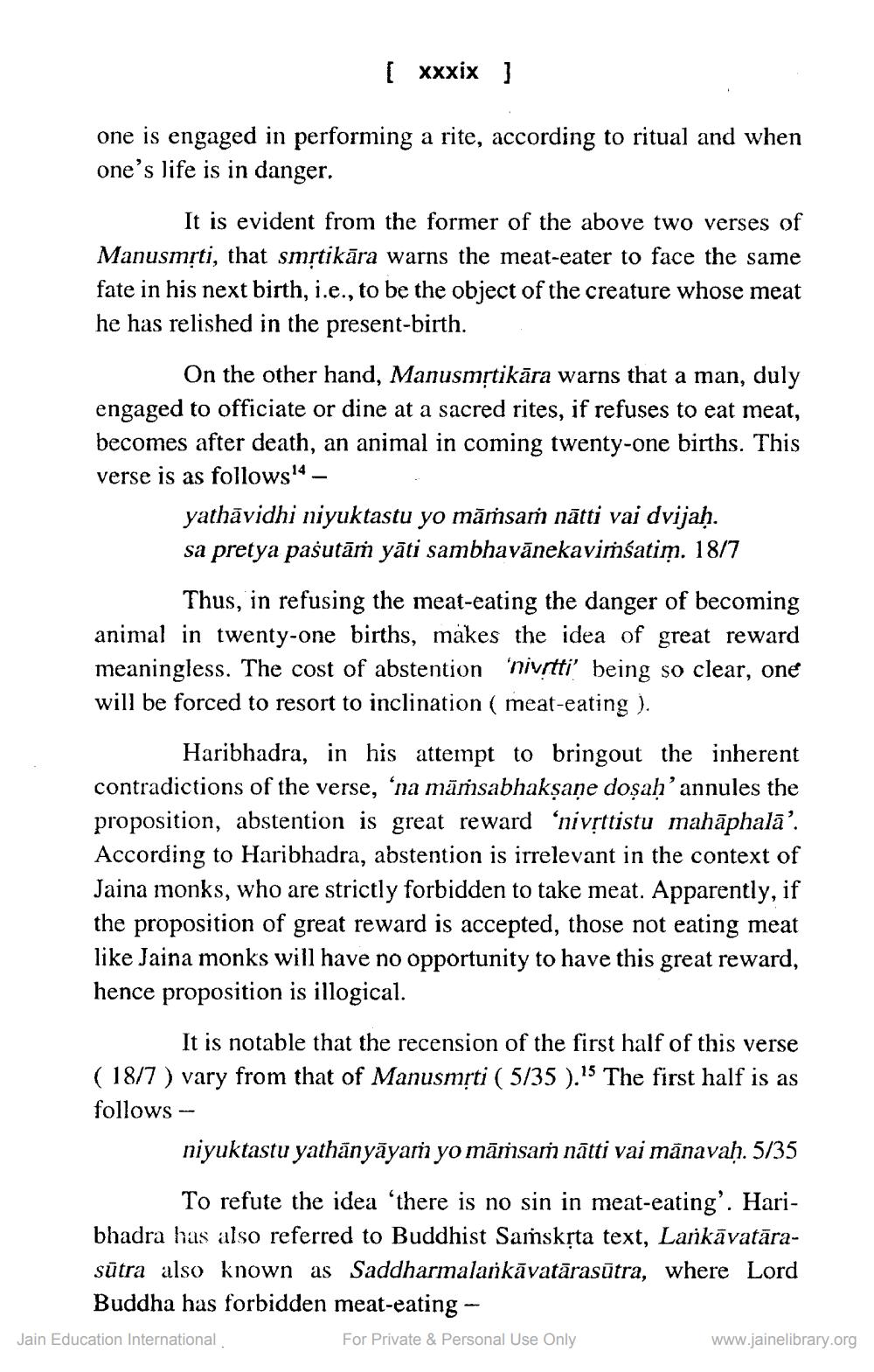________________
[ xxxix ]
one is engaged in performing a rite, according to ritual and when one's life is in danger.
It is evident from the former of the above two verses of Manusmrti, that smṛtikāra warns the meat-eater to face the same fate in his next birth, i.e., to be the object of the creature whose meat he has relished in the present-birth.
On the other hand, Manusmṛtikāra warns that a man, duly engaged to officiate or dine at a sacred rites, if refuses to eat meat, becomes after death, an animal in coming twenty-one births. This verse is as follows14.
-
yathāvidhi niyuktastu yo māṁsaṁ nātti vai dvijaḥ. sa pretya pasutāṁ yāti sambhavānekaviṁśatim. 18/7
Thus, in refusing the meat-eating the danger of becoming animal in twenty-one births, makes the idea of great reward meaningless. The cost of abstention nivṛtti' being so clear, one will be forced to resort to inclination (meat-eating ).
Haribhadra, in his attempt to bringout the inherent contradictions of the verse, 'na māṁsabhakṣaṇe doṣaḥ' annules the proposition, abstention is great reward 'nivṛttistu mahāphalā'. According to Haribhadra, abstention is irrelevant in the context of Jaina monks, who are strictly forbidden to take meat. Apparently, if the proposition of great reward is accepted, those not eating meat like Jaina monks will have no opportunity to have this great reward, hence proposition is illogical.
It is notable that the recension of the first half of this verse ( 18/7) vary from that of Manusmṛti (5/35 ).15 The first half is as follows -
niyuktastu yathānyāyaṁ yo māṁsaṁ nātti vai mānavaḥ. 5/35
To refute the idea 'there is no sin in meat-eating'. Haribhadra has also referred to Buddhist Samskṛta text, Lankāvatārasūtra also known as Saddharmalaṁkāvatārasūtra, where Lord Buddha has forbidden meat-eating
For Private & Personal Use Only
Jain Education International
www.jainelibrary.org




